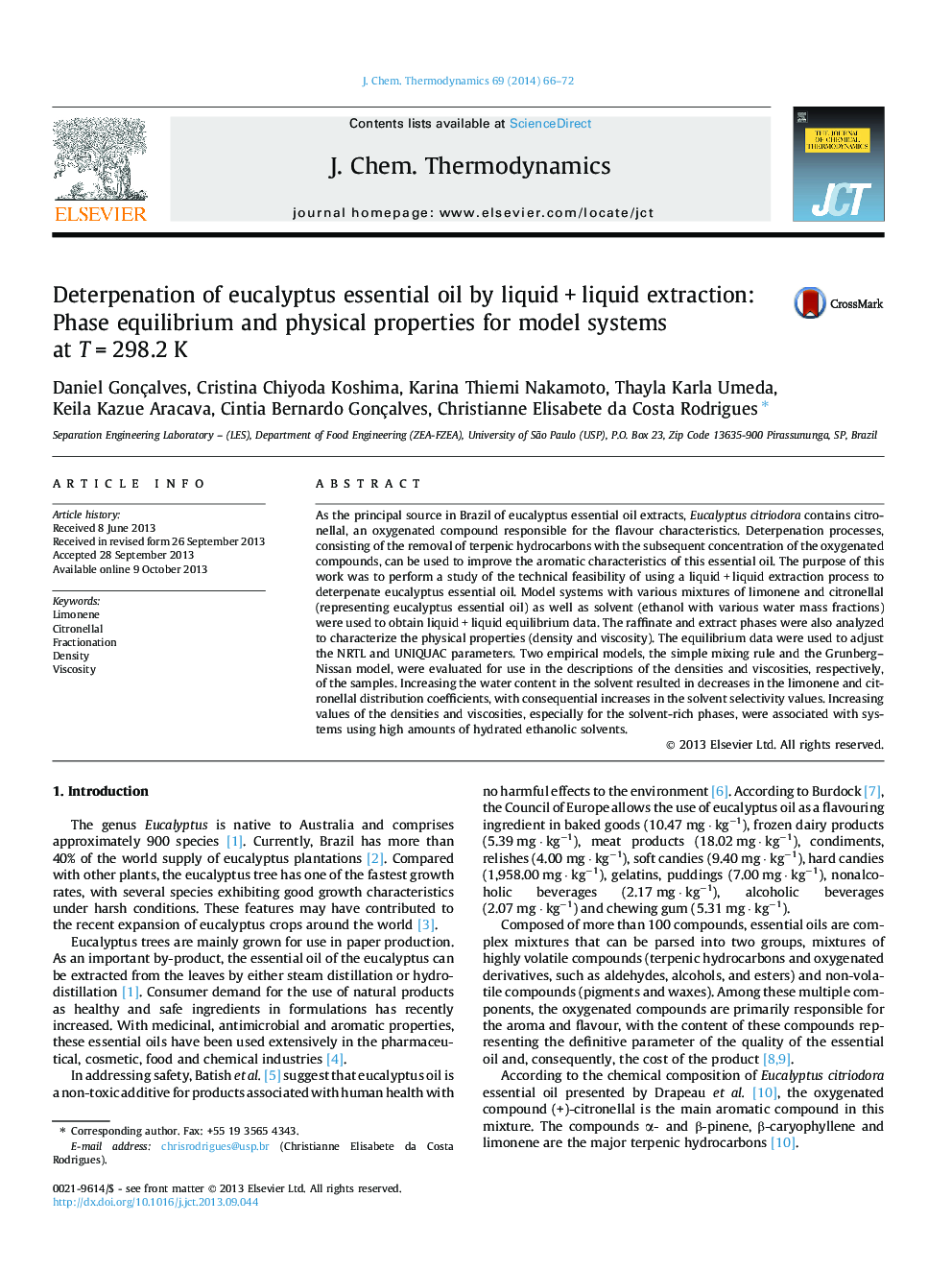| Article ID | Journal | Published Year | Pages | File Type |
|---|---|---|---|---|
| 215422 | The Journal of Chemical Thermodynamics | 2014 | 7 Pages |
•Fractionation of essential oil compounds.•Liquid + liquid equilibria of limonene, citronellal, ethanol and water were studied.•Distribution coefficients of limonene and citronellal were evaluated.•Densities and viscosities of the phases were experimentally determined.•Solvent selectivities and physical properties were dependent on citronellal and water mass fractions.
As the principal source in Brazil of eucalyptus essential oil extracts, Eucalyptus citriodora contains citronellal, an oxygenated compound responsible for the flavour characteristics. Deterpenation processes, consisting of the removal of terpenic hydrocarbons with the subsequent concentration of the oxygenated compounds, can be used to improve the aromatic characteristics of this essential oil. The purpose of this work was to perform a study of the technical feasibility of using a liquid + liquid extraction process to deterpenate eucalyptus essential oil. Model systems with various mixtures of limonene and citronellal (representing eucalyptus essential oil) as well as solvent (ethanol with various water mass fractions) were used to obtain liquid + liquid equilibrium data. The raffinate and extract phases were also analyzed to characterize the physical properties (density and viscosity). The equilibrium data were used to adjust the NRTL and UNIQUAC parameters. Two empirical models, the simple mixing rule and the Grunberg–Nissan model, were evaluated for use in the descriptions of the densities and viscosities, respectively, of the samples. Increasing the water content in the solvent resulted in decreases in the limonene and citronellal distribution coefficients, with consequential increases in the solvent selectivity values. Increasing values of the densities and viscosities, especially for the solvent-rich phases, were associated with systems using high amounts of hydrated ethanolic solvents.
